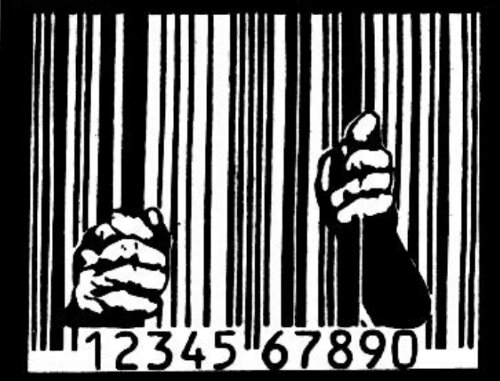
(image c/o: http://media.photobucket.com)
Thankfully Idaho has opted out of CCA’s ICC private prison due to too many bad headlines and lawsuits.
Private Prisons and the Creation of a Permanent Under Class
Posted: 03/11/2014 3:13 pm EDT
MORE: Juvenile Detention Center
Juvenile Crime Juvenile Justice System Prisons Public Education Juvenile Justice Crime News
“Prison ain’t the place to find your right of passage in, it’s slavery, with nasty food in your abdomen.” Immortal Technique (Parole, The 3rd World)
Unfortunately, for increasing numbers of teenage African American and Latino males, prison is becoming a rite of passage and their presence in juvenile detention facilities has become more and more profitable. Nearly forty percent of American juvenile detention facilities are private and in Florida, it is 100 percent. Increasingly, financially strapped states hire private prison corporations to run their incarceration facilities in order to gain a large financial payout. This seemingly ‘logical’ financial move by states to outsource their incarceration to private companies makes imprisonment a newly booming business. While the government’s goal for incarcerating people is to ‘rehabilitate’ them into becoming productive members of society, private prison companies’ goals for incarcerating people is to make profits through keeping prison beds filled (thus, the private companies require states to meet a certain quota of prisoners). At the same time that states are pouring more money into incarceration, they are slashing their educational budgets. The concurrent defunding of public education and the privatizing of juvenile detention facilities is creating a school to prison pipeline that is heavily racialized and gendered.
The “school-to-prison pipeline” highlights the racial inequalities associated with incarceration and educational opportunities within the U.S. Most of the students targeted for disciplinary action at public schools are male, African American, Latino, low-income, or disabled. Disabled African American students are suspended at three times the rate of their disabled white peers. One in three African American men will spend time incarcerated, and one in seven Latino men. The massive public school closures occurring in urban centers like Chicago and Oakland are leaving thousands of children without an option for education, pushing them towards the privatized juvenile facility beds. Teaching at a public university in Miami-Dade county has opened my eyes to the ways in which urban public schools have largely become prisons: my students would tell me about armed police, metal detectors, metal bar doors that would lock students inside, and feeling threatened enough to carry weapons to school. This ‘conditioning’ of lower income and minority students to prison-like conditions in their educational setting makes it an easier ‘transition’ for when they do eventually end up in some form of correctional facility. Noam Chomsky calls the War on Drugs and massive incarceration of nonviolent offenders the rich man’s counterinsurgency.
Many people argue that private prisons are more cost effective than state run prisons and provide financial savings to taxpayers. This mythos of cost effectiveness has been debunked by a recent Yale economic study. While private prisons do have lower costs on average per prisoner, the high increased rates of recidivism after release from a private prison makes it actually more costly in the long term. There have been reports of increased physical and sexual abuse occurring in private prisons. The U.S. Department of Justice released a report that states 9.5 percent of juveniles in detention facilities are subject to sexual abuse. Instead of educating children in low income urban areas, our society decides it is a better investment for taxpayers to incarcerate them. However, as the Yale study pointed out, prisons are definitely not more cost-effective than education in preventing criminality. Despite all this evidence that private prisons, and incarceration in general, do not produce the most cost effective ways to manage crime within our society, we continue on this expensive and unjust path. This is because these policies are enacted in order to create a permanent underclass within American society that is racialized and classed.
The fact that nearly 10 percent of teenage youth in detention facilities are abused is horrifying enough, but we often forget how damaging a criminal record is once people are released back into society. In a number of states, felons cannot vote, and this law continues the tradition of racist voter suppression laws in a much more covert manner. In this way, the urban underclass created through the school-prison pipeline is largely left out of politics and making real changes to the current incarceration systems that oppress them. As mentioned earlier, rates of recidivism in private juvenile facilities are significantly higher than rates for state run facilities and hovers around forty percent. The vicious cycle of incarceration and recidivism is largely due to the way in which our society treats released prisoners. Many have a hard time finding employment once they are released because of their criminal records and often end up right back where they started. In this way, we are creating a permanent underclass that remains uneducated, unemployable, and that eventually becomes disenfranchised, both legally and intellectually, from the political system. And the face of this member of the permanent underclass is overwhelmingly black or brown and male.
Follow Julia Meszaros on Twitter: http://www.twitter.com/Jmesz1981
(Also many thanks to Huffington Post)


